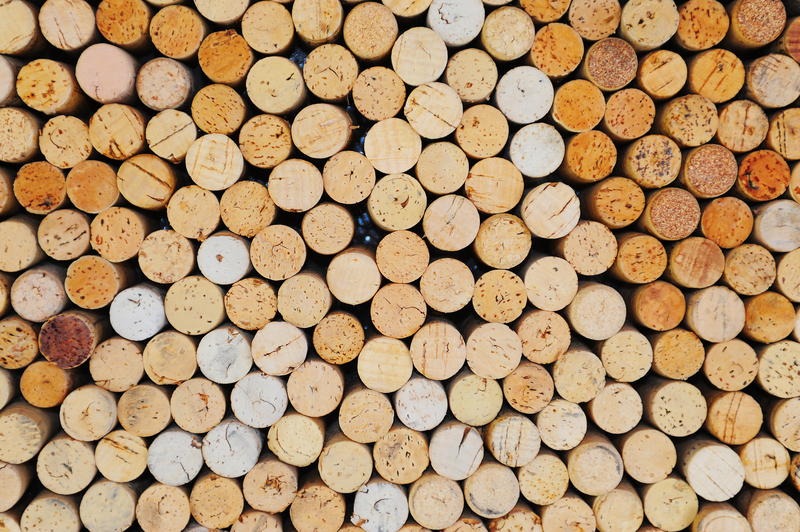How Recycling Pots and Pans Helps the Environment
Recycling has become an essential component of modern sustainability efforts, but while most people are familiar with the benefits of recycling paper, plastics, and glass, fewer are aware of the critical role that recycling pots and pans plays in helping the environment. Kitchenware like old pots, pans, and other cookware accumulates over time, and knowing how to properly dispose of these items can make a significant difference in our ecological footprint. This comprehensive guide will explore how recycling pots and pans helps the environment, discuss the broader importance of metal recycling, and provide practical tips on how you can make a positive environmental impact in your kitchen.

Understanding Pots and Pans Recycling
Pots and pans are staples in every kitchen. Over the years, they can wear out, warp, or simply no longer serve our needs. Instead of tossing them into the trash, recycling offers a sustainable solution. But what exactly does recycling cookware entail? Before we look at the environmental benefits, let's break down what recycling pots and pans means and why it's an important aspect of eco-friendly living.
What Are Pots and Pans Made Of?
- Aluminum: Lightweight and a great conductor of heat, aluminum is highly recyclable.
- Stainless Steel: Durable and resistant to rust, stainless steel is also 100% recyclable.
- Copper: Excellent for heat conduction, copper is valuable and widely recyclable.
- Cast Iron: Known for its durability, cast iron can be remelted and used again.
- Non-stick Coatings: Some pans have Teflon or ceramic coatings, which can complicate the recycling process.
Understanding the variety of materials helps us see why proper recycling is crucial. Each material impacts the recycling process and the environment differently.
The Environmental Impact of Disposing Cookware Improperly
When old pots and pans end up in landfills, their environmental toll is significant. Most cookware is made from metals that take hundreds, if not thousands, of years to decompose. Here's how not recycling pots and pans harms the environment:
- Landfill Waste: Metal cookware takes up space and doesn't break down easily.
- Resource Waste: Throwing away metals wastes the resources and energy used to extract and process them originally.
- Pollution: Corroding metals can leach toxic substances into soil and groundwater.
- Greenhouse Gas Emissions: Producing new metals is energy-intensive and increases carbon emissions.
By understanding these harmful effects, it becomes even more critical to find alternative, environmentally-friendly ways to handle old cookware.
How Recycling Pots and Pans Benefits the Environment
1. Conservation of Natural Resources
Metals such as aluminum, copper, and stainless steel are all derived from finite natural resources. By recycling old pots and pans, these valuable materials are reclaimed and repurposed, significantly reducing the need for virgin mining. Here's how this process helps:
- Reduces Mining: Less demand for raw minerals lowers the need for mining, which is ecologically damaging.
- Preserves Ecosystems: Mining disrupts habitats, damages ecosystems, and affects biodiversity.
- Saves Energy: Recycling metals uses up to 95% less energy compared to primary production from ore.
2. Minimizes Energy Consumption
The energy required to recycle metals from old cookware is significantly less than the energy required to extract and process virgin materials. For instance, recycling aluminum uses only about 5% of the energy needed for producing new aluminum from bauxite ore. This dramatic reduction in energy consumption leads to substantial environmental benefits.
3. Decreases Greenhouse Gas Emissions
Since recycling metals requires less energy, it also results in fewer greenhouse gas emissions, helping to combat climate change. By reducing the demand for new mining and metal production, you directly cut down on the fossil fuels burned during these processes, which release carbon dioxide and other harmful gases.
4. Reduces Landfill Usage and Pollution
Landfills are not just unsightly; they are hazardous to the environment. Old pots and pans can leach heavy metals and chemicals as they slowly corrode, polluting soil and groundwater. Recycling cookware means fewer items end up in landfills, leading to:
- Less Soil and Water Contamination: Minimizes the risk of toxic substances leaching into the ground.
- Decreased Landfill Overflow: Frees space for true waste while diverting valuable materials back into use.
5. Encourages a Circular Economy
A circular economy emphasizes keeping products, materials, and resources in use for as long as possible. By recycling pots and pans, you participate in this responsible system, ensuring that what once was waste becomes a resource again. This process fosters more sustainable consumption and reminds manufacturers and consumers of the value of thoughtful resource use.
How to Recycle Your Old Pots and Pans
1. Check Local Recycling Programs
Many municipalities have special recycling programs or drop-off locations for metal goods, including old kitchenware. Check with your local waste management authority to find out the specific guidelines. Some cities accept metal cookware in curbside recycling, while others require you to bring it to a dedicated collection center.
2. Prepare Cookware for Recycling
Before recycling, it's important to remove any non-metal parts, such as plastic handles or glass lids. If a pan is coated with Teflon or another non-stick material, contact your recycling center to ask if these coatings need to be removed or if they have specific instructions.
- Remove handles: Use a screwdriver to detach plastic or wood handles.
- Separate different materials: Place all-metal pieces into metal recycling and non-metal components in their respective streams.
- Clean thoroughly: Rinse off any food residue before recycling.
3. Consider Donation or Repurposing
If your pots and pans are still usable, consider donating them to local shelters, thrift stores, or community kitchens. You can also repurpose old cookware around the home or garden--old frying pans make great planters, for instance!
What Happens to Recycled Pots and Pans?
Once collected, recycled kitchenware undergoes a process of:
- Sorting: Metals are sorted by type--aluminum, steel, copper, etc.
- Shredding: Cookware is broken down into smaller pieces.
- Melting: Metals are melted in large furnaces to remove impurities.
- Purification: The molten metal is purified and prepared for reuse.
- Reformation: The clean metal is formed into sheets, bars, or other raw forms for manufacturing new products.
The recycled metal from old pots and pans might be turned into new kitchenware, construction materials, automotive parts, electronics, and more, further extending the life cycle of these important resources.
Additional Environmental Benefits of Recycling Cookware
Reduces Demand for Deforestation and Mining
Mining for metal ores often involves clearing forests and disrupting ecosystems. By recycling cookware, we reduce the market demand for new extraction projects, preserving more wilderness areas and the natural environment.
Promotes Responsible Consumer Habits
Every time you choose to recycle, you promote environmental awareness and responsible behavior in your community. Your actions can inspire others to do the same, multiplying the environmental benefits over time.
Lowers Production Pollution
The process of mining and refining metals creates air and water pollution. Recycling metals from cookware emits fewer pollutants, resulting in cleaner air and waterways. This has positive ripple effects for wildlife and public health.
Challenges and Considerations in Recycling Old Cookware
While the advantages are clear, recycling pots and pans does come with a few challenges:
- Non-stick coatings: Some recycling centers may not accept cookware with Teflon or ceramic coatings.
- Unclear regulations: Not all municipalities accept metal cookware curbside.
- Mixed materials: Handles and knobs may be made of plastics or composites that are harder to recycle.
It's essential to check with your specific waste management provider for the best practices in your area to ensure that your efforts truly benefit the environment.
Innovative Ways to Extend the Life of Old Pots and Pans
Upcycling Cookware for Home and Garden
Instead of recycling right away, upcycle your old cookware for creative projects. Here are some ideas:
- Planters: Use large pots for flowers or small herb gardens.
- Wall Art: Vintage pans can be painted and hung as decorations.
- Bird Feeders: A shallow saucepan makes a charming bird feeder.
- Tool Holders: Repurpose pots to organize garage tools or craft supplies.
Donation to Non-Profits
Many non-profits, food banks, and shelters are in need of usable cookware. Donating extends the lifespan of pots and pans and reduces immediate demand for new production, minimizing the environmental impact.

Frequently Asked Questions about Recycling Pots and Pans
Can I put pots and pans in my curbside recycling bin?
This depends on your local recycling program. Many curbside programs do not accept large metal items, but they may allow you to bring them to a designated metal recycling center.
Do I need to remove non-stick coatings before recycling?
It's best to check with your local recycling center. Some facilities can process non-stick pans, while others require you to remove coatings.
Is it better to donate or recycle kitchenware?
If your pots and pans are still functional, donation is always the best first option. Recycling is a great choice for items that are damaged or worn beyond use.
Conclusion: The Ripple Effect of Recycling Cookware
The seemingly simple act of recycling your old pots and pans has widespread environmental benefits. From conserving precious natural resources and reducing pollution to saving energy and promoting sustainability mindsets, each step you take matters. The more households that choose to recycle kitchenware, the greater the impact on our planet's well-being.
Remember, every item recycled is one less item clogging our landfills and one less piece of raw material that has to be mined, smelted, and transported across the globe. By recycling pots and pans, you are not only making eco-friendly choices for your own home but also setting a sustainable example for your community.
So next time you're ready to part with an old frying pan or a scratched-up saucepan, think twice before tossing it in the trash. Consider recycling, donating, or repurposing--and know that you're making a meaningful difference for the environment, one pot at a time.



